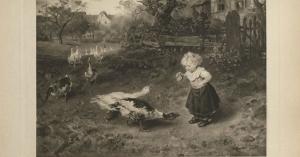 Fear and Trembling – Philippians 2:12-18
Fear and Trembling – Philippians 2:12-18
There is probably no better description of the truth both of God’s sovereignty and grace and our responsibility to respond faithfully to this grace than Philippians 2:12-13. As I was growing up, my Dad often referred to this verse, and I wondered if it were his all-time favorite because he got a lot of mileage out of it. Even as a kid, I sort of understood why. In these 2 verses St. Paul says to “work out your own salvation with fear and trembling, for it is God who works in you both to will and to do for His good pleasure.”
I don’t get it. Which is it? Am I to work out my own salvation with fear and trembling, or is it God who works in me to do His will? The answer that Paul gives and that is given by God throughout His Word is: both.
There are two errors that are common among Christians. One is to stress God’s sovereign grace so much that we in effect say, “God has done everything so I have to do nothing.” A variation of this that I’ve heard much too often is, “Once saved, always saved” and, “We’re under grace, not law.” I’m not really interested in arguing about the truth of these statements and what they really mean, as much as I am in discussing the abuse of them. Unfortunately, many of the times I’ve heard people use these phrases or articulate similar concepts, what they really mean is that they are free to live any way they want because God has to forgive and accept them anyway.
If you’ve been reading the Scriptures with me and reading Give Us This Day, then you’ll know that Jesus Christ, St. Paul, and St. James are all united in teaching that how we live has everything to do with whether we truly believe or not. Grace cannot be an excuse to sin, or else we haven’t really understood God or His grace at all.
The other, opposite error, is in stressing that what really matters is what we do. If only I’m good enough, if only I adopt a Third World child or anonymously give to Habitat for Humanity or some other good cause or try to be a good person, then God has to accept me. A less extreme version of this would be to so emphasize the good works we must do to be saved that we lose sight that from beginning to end every part of salvation comes through the grace of Jesus Christ.
The strange thing is that both errors lead to similar kinds of Christians: those who continue to live for self and not for God, and those who do not take Christ’s radical call to discipleship as seriously as they ought.
When, therefore, Paul says that you are to work out your salvation with fear and trembling, he really means it. But he doesn’t say or mean, “save yourself with fear and trembling.” Paul never makes the mistake of believing that we save ourselves. But he also never makes the mistake of thinking that he has arrived and doesn’t have to work to participate in the salvation that God offers.
In the Greek, the word for “work out,” means, “to work to produce something.” If God has chosen us to be His children and given us the gift of Jesus Christ, then it is our essential duty to participate in Jesus Christ, who is the gift of salvation. Maybe it would help to think of God not so much giving us salvation, as if the abstract idea of salvation is what saves us, but to think of God giving us Jesus Christ. But to continue to receive the grace that comes through, and is, Jesus Christ, we have to choose to participate in Him.
God can say, in effect, “Here is my Son, and through Him here is salvation.” But if we do not receive this gift the way that God says it must be received, then we do not really receive it.
Another way of saying this is to explore the Calvinistic term “unconditional election.” In one sense this doctrine may be true. But does God attach terms or conditions to His covenant with mankind? All the time. Go back and read the Old Testament again and see if God has terms for coming into covenant with Him, things like circumcision, sacrifice, faith, obedience to His laws, etc. A useful book for understanding God’s covenant with mankind is Ray Sutton’s That You May Prosper.
But maybe God has changed things so radically in the New Covenant (Testament) that there are no terms. If we really believed this, then all we could really say would be, “God gives grace to some people and not others and there’s nothing we can or should do about it.” When the apostles were asked by others in the book of Acts what must they do to be saved, what was the apostles’ answer? They answered in a variety of ways, but their answers included three things: believe on the Lord Jesus Christ, repent from your sins, and be baptized.
In a similar way, God asks us to continue to work out the salvation He has given us, that is, our life in Jesus Christ. And we work out our salvation in ways similar to how we received this new life. We continue to believe on the Lord Jesus Christ, which means we must continue to hear His Word. We continue to obey His holy will and repent from our sins. And we partake of the Body and Blood of Jesus Christ and renew the covenant that He established through baptism.
Finally, we should not forget that St. Paul reminds us that our salvation is something that we must work out with fear and trembling. As Paul himself knew so well, faith is not an easy thing to achieve and maintain. It is often, in fact, the Cross itself upon which we are crucified. Exercising faith is about being faithful and obeying God, even when we don’t feel or think like being faithful. It is often a very painful, confusing, difficult thing.
This is one of the greatest tragedies of forms of Christianity that promise an easy life in Christ in which either what you do doesn’t matter or in which the life that is promised is a rose garden that in reality feels more like a crown of thorns. For a variety of reasons, it’s easy as American Christians in the 21st century to think that being a Christian, that is being a faithful disciple, is an easy thing.
It’s easy if being a Christian only means saying that you’re one. It’s still pretty easy if all you have to do is “go to church” once a week or less.
But if you are a Christian who seeks a deeper life in Christ and yet often finds your life in Christ to be exceedingly difficult, do not lose courage. You may be closer to Christ than you think. It is those who approach God with fear and trembling that truly understand Him. Those who think that the worship of God means being entertained or feeling good will be surprised to come to heaven and find out that their first response will be to fall down with fear and trembling before Him. They will be surprised to find that all throughout the Bible when people truly encounter God for who He is, they fall down at His feet. They fear, and they tremble. Their knees knock, the bottoms fall out of their stomachs, and they say things like “Woe is me – I’m undone!” or “Depart from me –I’m a sinful man!” or “I’m not worthy to eat the crumbs from under Your table!”
But even when you fear and tremble before the Lord, aware of your own sinfulness and failings, you should take heart: for it is this same fearful Lord who is at work in you both to will and to do His good pleasure. And He is your salvation.
“Let all mortal flesh keep silence, and with fear and trembling stand.
Ponder nothing earthly minded, for with blessing in His hand
Christ our God to earth descendeth, our full homage to demand.”
Prayer: Father, I pray that I may come before You today with fear and trembling, acknowledging You to be a holy, living fire and the Almighty God of Creation. Help me to always seek You and Your strength that I may be able to work out my salvation with fear and trembling before You and shine as a light in this crooked and perverse generation. Amen.
Resolution and Point for Meditation: I resolve to consider whether I have a tendency more to act as if God’s grace means I don’t have to do good works in a life of faith or a tendency more to trust in my own actions more than God’s goodness and grace.
Fear and Trembling – U.S. Public Domain











